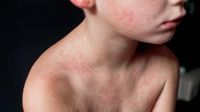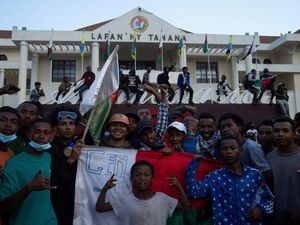On March 26, 2025, a primary school in Rotterdam, IBS Risala, closed its doors for a week due to a measles outbreak affecting 32 children. The decision to temporarily halt classes comes after health officials warned of multiple infections at the school, which is located on Hollandsestraat in the Feijenoord district. The school will remain closed until at least April 1, 2025, to prevent further spread of the highly contagious virus.
Last week, on March 19, the RIVM (Rijksinstituut voor Volksgezondheid en Milieu) had already issued a warning regarding several measles cases in the Rotterdam-Rijnmond region, indicating an outbreak at a school without naming it at the time. Following this alert, the GGD (Gemeentelijke Gezondheidsdienst) began source and contact tracing efforts.
In a letter to parents, Rahma Iqachoura, the director of IBS Risala, emphasized the seriousness of the situation, stating, "Measles is a highly contagious disease, up to eight times more contagious than the flu." The letter also detailed the symptoms of measles, which include cold-like symptoms, high fever, and a rash. Iqachoura urged parents to keep their children away from babies, pregnant women, and individuals with weakened immune systems.
Despite the school implementing hygiene measures and monitoring symptoms among students, the number of reported cases continued to rise significantly, prompting the administration to close the school as a precautionary measure. The school has arranged for remote education, providing a digital learning package and limited online classes for older students, similar to measures taken during the COVID-19 pandemic.
Parents have been informed that they will need to find alternative childcare solutions during the closure, as the school cannot provide emergency care at this time. In a follow-up communication, Iqachoura acknowledged the challenges this situation poses for families, expressing gratitude for their understanding. She reiterated, "The health of our students, their families, and our staff is our top priority."
The measles outbreak is not isolated to IBS Risala. In the past week, there have been 50 new cases of measles reported across the Netherlands, affecting five schools, particularly those with lower vaccination rates. The RIVM has noted that this year alone, there have been 158 reported cases of measles, nearly doubling the number of cases in just one week.
In a broader context, the RIVM has linked some of the recent infections to a larger measles epidemic occurring in Morocco, where at least 24 patients have contracted the disease. Other cases have been reported in Romania (3), Belgium (1), and Vietnam (1). While the RIVM stresses that a national outbreak has not been declared, it acknowledges that there are clusters of cases in different regions.
The health authorities are actively urging parents to be vigilant for signs of measles in their children, particularly those exhibiting rash-like symptoms. The RIVM has encouraged families to keep such children at home to prevent further transmission.
Measles is an extremely contagious viral infection that can lead to serious complications, particularly in young children. The disease spreads through respiratory droplets when an infected person coughs or sneezes. Vaccination is the most effective way to prevent measles, and the majority of children in the Netherlands are vaccinated against the disease. However, the recent rise in cases highlights the ongoing challenges in achieving high vaccination coverage, especially in communities with lower immunization rates.
As the situation develops, health officials continue to monitor the outbreak closely, emphasizing the importance of vaccination and awareness to curb the spread of measles. The GGD has reached out to parents in the affected areas, encouraging them to vaccinate their children and remain informed about the symptoms and risks associated with measles.
In summary, the closure of IBS Risala reflects a proactive approach to managing a public health threat, as health authorities work to contain the outbreak and ensure the safety of students and their families. The emphasis on remote education during this period also illustrates the adaptability of educational institutions in response to health crises.





